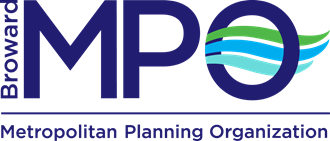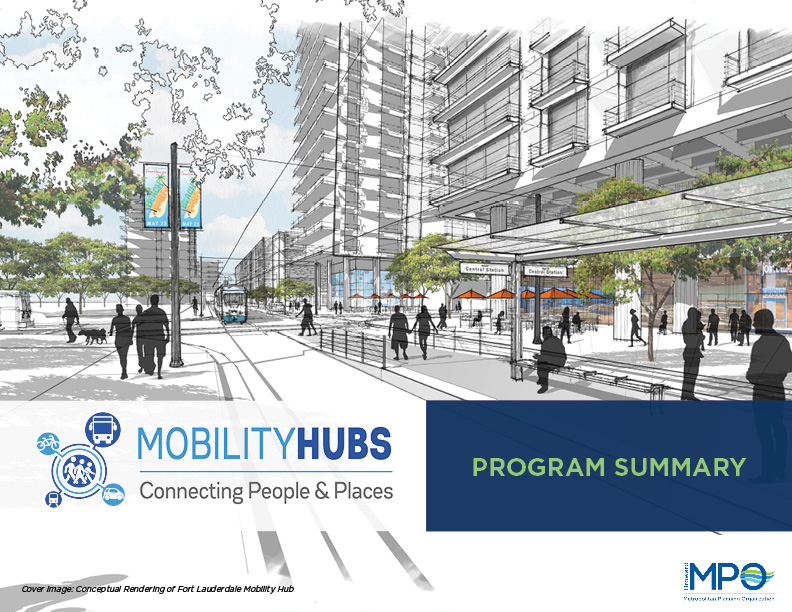The purpose of the Localized Economic Development Program is to provide funding for mobility hub planning studies, design, and construction through competitive and discretionary grants to eligible applicants. The MPO launched its first mobility hubs competitive grant funding cycle on December 9, 2021, and through this application process the City of Coconut Creek Mobility Hub Master Plan was selected. The plan was created congruent with Coconut Creek's Main Street development, currently under construction and set to open by the end of 2026.
Mobility Hubs are transit access points with frequent transit service, high development potential and a critical point for trip generation or transfers within the transit system.
The 2035 Long Range Transportation Plan (LRTP) created and defined the ‘mobility hub’ concept based on a variety of land use and transit criteria.
The Hub concept has evolved as the Broward MPO has worked with partner agencies and local governments to design and implement the Hubs. There has been a greater focus on pedestrian and bicycle connections, secure and comfortable places to wait for transit, and safe and easy transfers between routes. These investments in public spaces provide the framework for private investment in places where people live, work and play.
The Broward MPO updated the Mobility Hubs Program in May 2018. The program update included a market analysis for Mobility Hubs, redefining locations and typologies of Hubs, and an implementation program to better identify locations for future Hubs.
As the Mobility Hubs continue to evolve the hubs will still accomplish the MPO's three main goals:
Move People & Goods
- Maximize Transit Ridership
- Improve Accessibility for all (Regional) Users of the Transportation System
- Achieve Level-of-Service (LOS) Standards on Existing Infrastructure
- Maintain Infrastructure
Create Jobs
- Maintain or Reduce Average Travel Time to Major Economic Centers of the Urban Area (Regional)
- Promote New Development
- Minimize the Overall Cost of Travel
- Maximize Private Investments in Transportation Service Provision
Strengthen Communities
- Reduce Accidents, Injuries and Fatalities
- Promote Redevelopment and Infill
- Provide Options for Non-motorized Travel
- Insure Transportation Benefits and Costs are Equitably Distributed throughout the Region
- Promote Environmentally Sensitive Projects
- Insure Projects include Appropriate Aesthetic Considerations in their Project Design
Documents
- Revisit & Update Final Report (February 2018)
- New Development (February 2018)
- Revisit Current Methodology: Assessment (January 2018)
- Ride-Hailing Integration (January 2018)
- Market Assessment (July 2017)
- Candidate Location Evaluation & Scoring (December 2017)
- Trip Generation Assignments
- Anchor Mobility Hub Graphic
- Gateway Mobility Hub Graphic
- Community Mobility Hub Graphic
For More Information
Please contact Amanda Christon at (954) 876-0078 or christona@browardmpo.org to learn more about the Broward MPO and what they are working on in your community.


